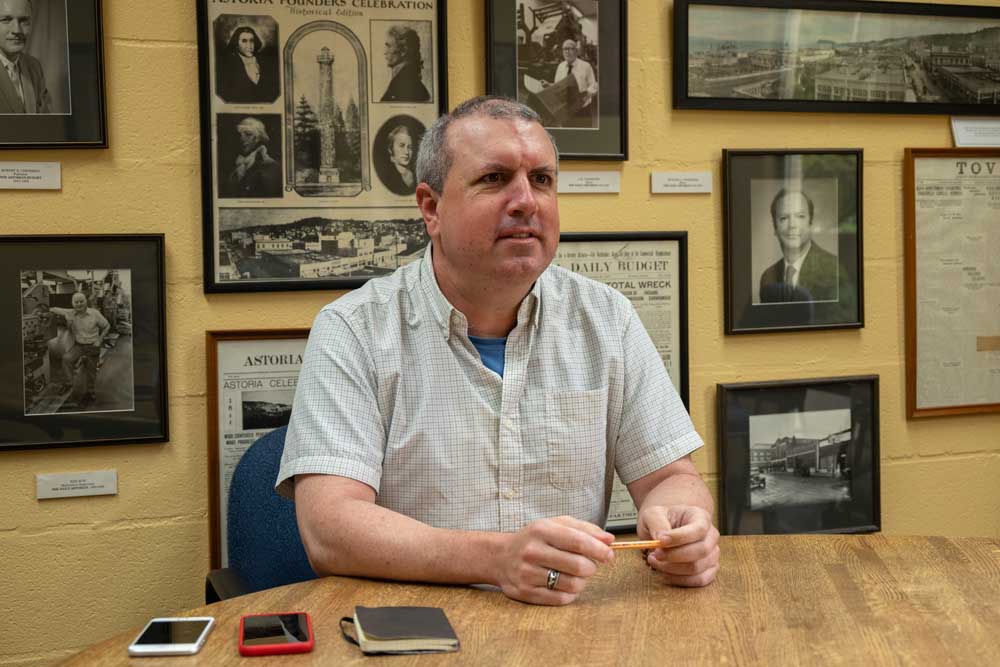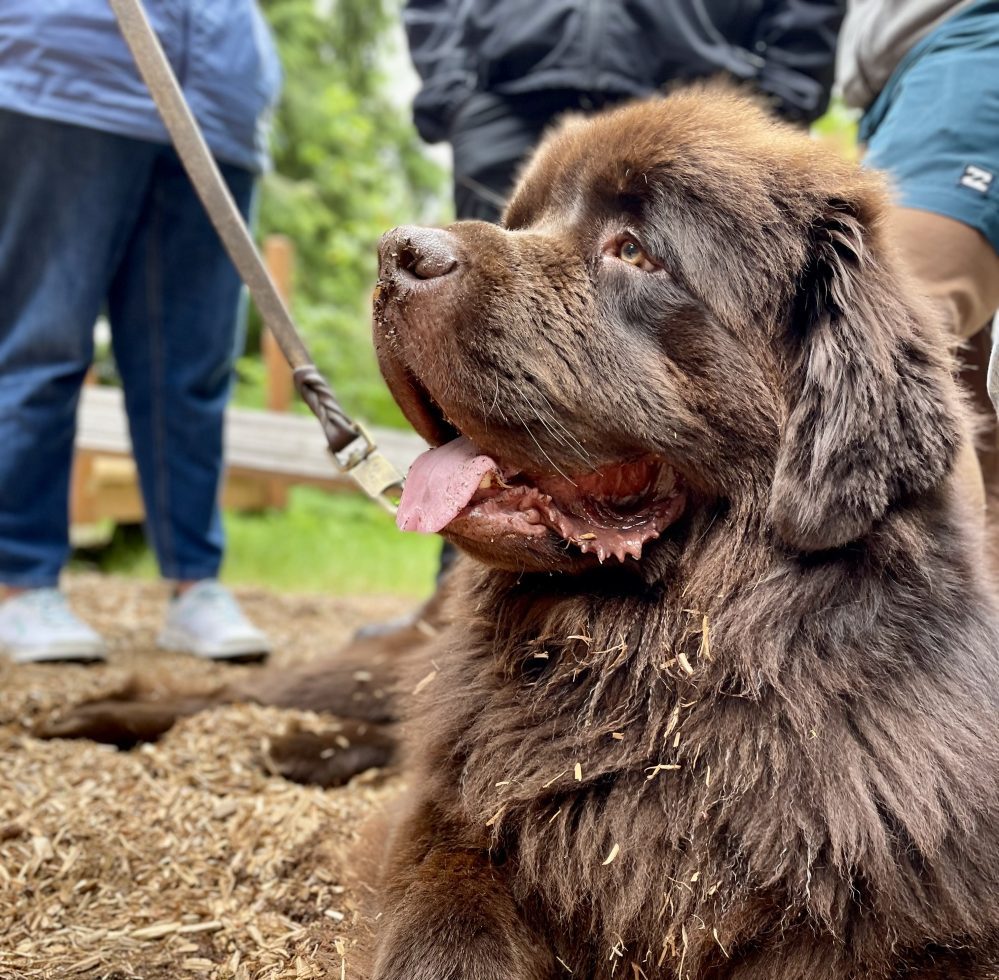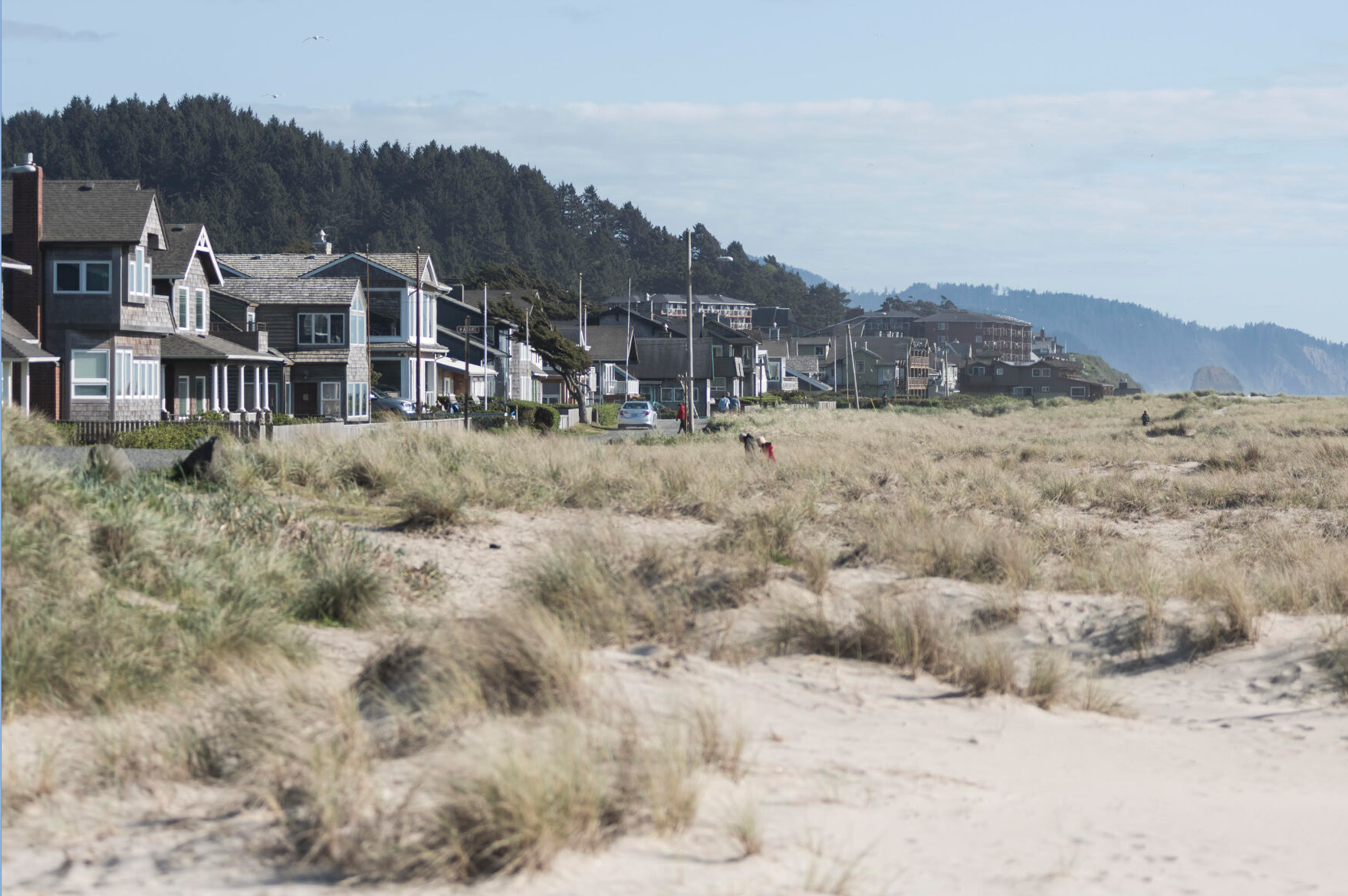Behind the News: ‘I think that I’m collaborative in my approach’
Published 12:30 am Saturday, July 27, 2024

- Andy Davis serves on the Astoria City Council.
Andy Davis has carved out space on the policy front while serving on the Astoria City Council.
Trending
Well-prepared and willing to ask difficult questions, he has often elevated debates on issues involving housing and land use and pressed city staff to explain budget and financial matters.
His skill set, though, may not easily translate to voters as he introduces himself as the Democratic nominee for state House District 32. Democrats chose Davis this month to replace Logan Laity, who withdrew because of work relocation.
Davis will have to quickly launch a campaign to compete against state Rep. Cyrus Javadi, a Tillamook Republican, in the November election.
Trending
“I think that, and I like to think this is evidenced by my time on council, that I’m someone who is really capable of listening to everybody who has a voice and wants to come to council,” said Davis, an analyst for the Oregon Health Authority. “And trying to solve problems for anyone, even if, ideologically, they don’t agree with me.”
Davis, a former chairman of Clatsop County Democrats, was elected to represent Uniontown’s Ward 1 in 2022. He ran unsuccessfully for the Clatsop County Board of Commissioners in 2018.
In an interview, Davis discussed his policy priorities and the challenges Democrats face on the North Coast.
Q: On the Astoria City Council, your focus has been on the policy front, particularly housing. What do you want voters to know about your policy priorities as you campaign for state House District 32?
A: I have policy priorities in the district, where I hear things — and have had experience on council — about the way state policy is impacting the region.
I work for the state right now, so I have some insight — I like to think — about what’s going on with, especially health care policy and health care workforce policy, that’s what I work in specifically.
So I think my emphasis in policy aspects are going to be things like, in Astoria, how things like combined sewer overflow are affected by the state, about environmental regulations that affect either forestry or fisheries in our area.
I’m very interested in what the state’s doing to support community colleges and, again, because of my personal work interest, what’s going on with the health care workforce.
We’ve got an aging population on the coast — and making sure that we keep a local workforce education pipeline strong and make sure that we have the services available for those folks as they need them out there. We’re lucky, in Clatsop County anyway, to have two hospitals, but they also demand a lot of workforce, so making sure that the community colleges can support a large portion of that.
I’ve talked with a couple of people in media already about — I have an interest, this is not necessarily policy, it’s more of a budget issue. We lost some strength in the Legislature with Betsy (Johnson) not being in the Senate at this point, and especially with her being on Ways and Means.
I have an interest — and I know there are other dynamics at play to who gets on Ways and Means, things like that — but I have an interest in trying to make sure that this region, that has strong infrastructure needs, manages to get its fair share coming out of the state budget so that we can take care of ourselves.
Q: What do you see as the criteria necessary to be an effective legislator in Salem?
A: Well, for me, I think one of the things is being able to effectively work with the lay of the land in Salem.
Right now, I see that as a Democratic majority. I expect that that will continue, at least for the foreseeable future. So I think being an effective legislator is being able to work with the politics that are going to be pushed by folks in Salem and Portland, and make sure that they can be adapted and fair to the people out here in the district on the coast.
They don’t always have us in mind, so being a voice that can be in the room with those folks and put up an effective fight to make sure that our needs are met is important.
Q: Back in 2021, when you were the chairman of Clatsop County Democrats, I asked you about what appeared — to us, at least — to be the party’s lack of momentum. Our view is that the party in this region may be in even worse shape today. Logan Laity was unopposed in the Democratic primaries for state House in 2022 and 2024. You were the only candidate to step up for the nomination when Laity withdrew. What do you see as the party’s challenge?
A: I think the challenge with parties in general is always going to be getting enough people working at the grassroots level. Volunteers that get in the sort of pipeline to then be eligible for being candidates later.
I think one of the difficulties in finding candidates for any office is — these are difficult jobs. You get put out in the firing line. You have people being very critical of you all the time. And that’s a difficult spot to ask people to voluntarily put themselves into, especially — state Legislature, most of these civic offices in local areas — are not paid well.
And asking people to make that sort of sacrifice is pretty difficult. I personally talked to some other people who I think would be great candidates for this role for the House (District) 32 — either the nomination or holding the office — who frankly don’t want to leave their day job, know that this is a big sacrifice and that it doesn’t pay well, and that’s a tough ask.
Q: What are the contrasts you are going to draw with state Rep. Cyrus Javadi, your Republican opponent? He has conservative positions on issues such as abortion and gun control. But he was not one of the Republicans who participated in walkouts. He has been consistently critical of the party’s direction under former President Donald Trump. Clatsop County Republicans — who, we believe, are on the far-right fringe — didn’t even endorse him in the May primary.
A: So I think that the biggest contrasts are probably going to be that I’m a pro-choice candidate. I’m pro-labor. I’m a union member now. I’ve been active in union activism over my life, so I think that that’s an important element for me.
You’re right that he’s not appearing as a far-right candidate, in that way. That’s fair enough.
I think that we have some differences of opinion and approach to things like how we want stewardship of public lands to be handled. So I think that the discussions around the habitat conservation plan and what that means for the district and how we ask the state to adapt to that. I think there are very valid issues that come up around rural school districts and how we fund them and shortfalls that they’re going to have because of the habitat conservation plan.
And I think there is some daylight, I sense, between the way we would approach those problems and the way we would try to negotiate with the state.
Q: Since you mentioned the habitat conservation plan, give me your assessment of what you think of that draft.
A: I think that, in general, and this is true for the HCP and for things like the FEMA (Federal Emergency Management Agency) BiOp, that our region gets put in a very difficult position because of some federal legislation.
I think that my perception is that the state Department of Forestry is doing the best job that they can to try and not be in a vulnerable position to litigation. That puts us in a difficult position of probably getting holes blown in a lot of budgets at the local level.
So I think my approach is that it then becomes the state’s responsibility to help with those shortfalls, to make sure that funding for local districts is approached more like there isn’t going to be this consistent state forestry funding to backfill everything.
So we need to come up with more creative solutions to help them out from the state level.
Q: You don’t have a lot of time to set up a campaign infrastructure or do voter outreach for the November election. What is the one thing you hope voters will get to know about you?
A: I think that, and I like to think this is evidenced by my time on council, that I’m someone who is really capable of listening to everybody who has a voice and wants to come to council. And trying to solve problems for anyone, even if, ideologically, they don’t agree with me.
I think I’ve productively worked with our whole council. And I know it’s not a partisan group. But, you know, we have disagreements on things. I love working with the councilors that I work with and am happy to talk and work with any of them.
So I think that I’m collaborative in my approach and want to make sure that everyone in the district gets heard and represented well in Salem.









